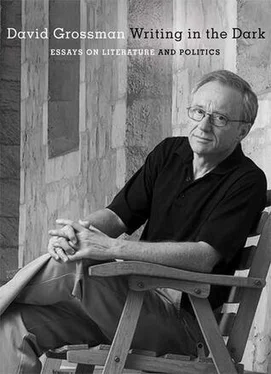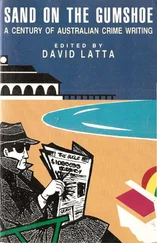One can answer this question only about one’s self, in private. But perhaps I can suggest a possible path to the answer. In the Jewish tradition there is a legend, or a belief, that every person has a small bone in his body called the luz , located at the tip of the spine, which enfolds the essence of a person’s soul. This bone cannot be destroyed. Even if the entire human body is shattered, crushed, or burned, the luz bone does not perish. It stores a person’s spark of uniqueness, the core of his selfhood. According to the belief, this bone will be the source of man’s resurrection.
Those of you who would like to find your own response to the question may, when you go home, choose to gather your thoughts and consider: What is the thing within me that is the true root of my soul? What is the quality, the essence, the final spark that will remain in me even when all other things are extinguished? What is the thing that has such great and concerted power that I will be re-created out of it, in an extremely private sort of “big bang”?
Once in a while I ask people close to me what they believe their luz is, and I have heard many varied answers. Several writers, and artists in general, have told me that their luz is creativity, the passion to create and the urge to produce. Religious people, believers, have often said that their luz is the divine spark they feel inside. One friend answered, after much thought: Parenthood, fatherhood. And another friend immediately replied that her luz was her longing for the things and people she missed. A woman who was roughly ninety at the time talked about the love of her life, a man who committed suicide over sixty years ago: he was her luz .
The second question I asked while writing See Under: Love is closely related to the first one, and in some ways even derives from it: I asked myself how an ordinary, normal person — as most Nazis and their supporters were — becomes part of a mass-murder apparatus. In other words, what is the thing that I must suspend within myself, that I must dull, repress, so that I can ultimately collaborate with a mechanism of murder? What must I kill within me to be capable of killing another person or people, to desire the destruction of an entire people, or to silently accept it?
Perhaps I should ask this question even more pointedly: Am I myself, consciously or unconsciously, actively or passively, through indifference or with mute acceptance, collaborating at this very moment with some process that is destined to wreak havoc on another human being, or on another group of people?
“The death of one man is a tragedy,” Stalin said, “but the death of millions is only statistics.” How do tragedies become statistics for us? I am not saying, of course, that we are all murderers. Of course not. Yet it seems that most of us manage to lead a life of almost total indifference to the suffering of entire nations, near and far, and to the distress of hundreds of millions of human beings who are poor and hungry and weak and sick, whether in our own countries or in other parts of the world. We are capable of developing apathy and alienation toward the suffering of the foreigners who come to work for us, and toward the misery of people under occupation — ours, and others’—and toward the anguish of billions of people living under any kind of dictatorship or enslavement.
With wondrous ease we create the necessary mechanisms to separate ourselves from the suffering of others. Intellectually and emotionally, we manage to detach the causal relationship between, for example, our economic affluence — in the sated and prosperous Western countries — and the poverty of others. Between our own luxuries and the shameful working conditions of others. Between our air-conditioned, motorized quality of life and the ecological disasters it brings about.
These “Others” live in such appalling conditions that they are not usually able to even ask the questions I am asking here. After all, it is not only genocide that can eradicate a person’s luz : hunger, poverty, disease, and refugee status can defile and slowly kill the soul of an individual, and sometimes of a whole people.
There are many terrible things occurring not far from us, for which we are unwilling to take any personal responsibility, either through active involvement or through empathy. It is convenient for us, where the burden of personal responsibility is concerned, to become part of a crowd, a faceless crowd with no identity, seemingly free from responsibility and absolved of blame.
Perhaps it is only in this global reality, where so much of our life is lived in a mass dimension, that we can be so indifferent to mass destruction. For it is the very same indifference that the vast majority of the world displays time after time, whether during the Armenian Holocaust or the Jewish Holocaust, in Rwanda or in Bosnia, in the Congo, in Darfur, and in many other places.
And perhaps, then, this is the great question that people living in this age must relentlessly ask themselves: In what state, at which moment, do I become part of the faceless crowd, “the masses”?
There are a number of ways to describe the process whereby the individual is swallowed up in the crowd, or agrees to hand over parts of himself to mass control. Since we, here, are people of literature and language, I will choose the one closest to our interests and to our way of life: I become part of “the masses” when I give up the right to think and formulate my own words, in my own language, instead accepting automatically and uncritically the formulations and language that others dictate.
I become “the masses” when I stop formulating my own choices and the moral compromises I make. When I stop articulating them over and over again, with fresh new words each time, words that have not yet eroded in me, not yet congealed in me, which I cannot ignore or defend myself against, and which force me to face the decisions I have made, and to pay the price for them.
The masses, as we know, cannot exist without mass language —a language that will consolidate the multitude and spur it on to act in a certain way, formulating justifications for its acts and simplifying the moral and emotional contradictions it may encounter. In other words, the language of the masses is a language intended to liberate the individual from responsibility for his actions, to temporarily sever his private, individual judgment from his sound logic and natural sense of justice.
The values and horizons of our world, the atmosphere that prevails in it and the language that dominates it, are dictated to a great extent by what is known as mass media, or mass communication. The term “mass media” was coined in the 1920s, when sociologists began to refer to “mass society.” But are we truly aware of the significance of this term today, and of the process it has gone through? Do we consider the fact not only that, to a large extent, the “mass media” today are media designed for the masses, but that in many ways they also turn their consumers into the masses ?
They do so with the belligerence and the cynicism that emanate from all their manifestations; with their shallow, vulgar language; with the oversimplification and self-righteousness with which they handle complex political and moral problems; with the kitsch in which they douse everything they touch — the kitsch of war and death, the kitsch of love, the kitsch of intimacy.
A cursory look would indicate that these kinds of media actually focus on particular personas rather than on the masses. On the individual rather than on the collective. But this is a dangerous illusion: although mass media emphasize and even sanctify the individual, and seem to direct the individual more and more toward himself, they are ultimately directing him only toward himself — his own needs, his clear and narrow interests. In an endless variety of ways, both open and hidden, they liberate him from what he is already eager to shed: responsibility for the consequences of his actions on others. And the moment they anesthetize this responsibility in him, they also dull his political, social, and moral awareness, molding him into conveniently submissive raw material for their own manipulations and those of other interested parties. In other words, they turn him into one of the masses.
Читать дальше












